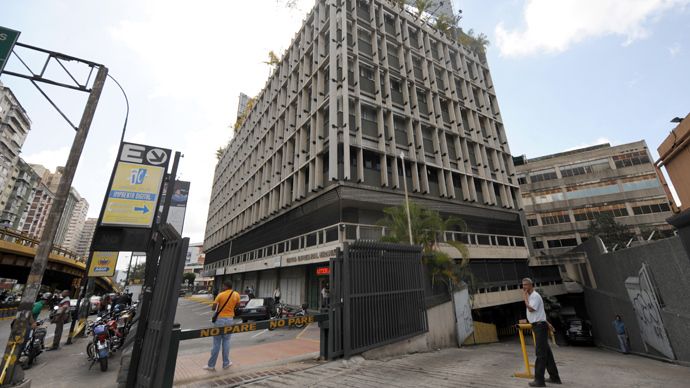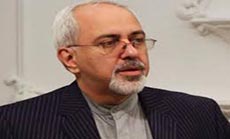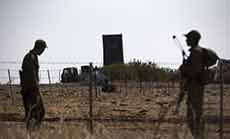
Eye on the Enemy: "IDF" Limits Soldiers’ Leaves over Mounting Tensions in Syria

Local Editor
Uzi Arad, "Israel" Must Not Nourish its Struggle
Channel 7
Former National Security Advisor Uzi Arad touched on this morning (Thursday) the words of the Prime Minister, Benjamin Netanyahu, who considered that Iran is responsible for the bombing in Bulgaria. "We hurt Imad Moughniyah a few years ago, we are the aggressors and we put Iran on the defensive, and Iran knows how to defend, "former National Security Adviser said. if "Israel" responded, it should take into account that there is also a counter response.
These are dynamics. Arad said in an interview with Army Radio that "the price of an event like yesterday's is not just in the tragedy it caused, the loss of life and the pain... it has diplomatic costs, governmental costs and the price is just getting higher. Those costs can be minimized."
According to Arad, "Israel" was accused in the past in implementing operations against Iranian nuclear facilities and Hizbullah, and it officially admits that it is considering a military option to strike Iran. "In return for all this, Iran cannot remain quiet, it is normal for it or its followers in Hizbullah to implement such actions. Iranian Officials are saying that Iran will respond, and it seems the response will be of the kind they used in Asia and Eastern Europe."
""Israel" must continue to struggle, but it must take into account that there are consequences and this is part of the dynamics. So, it should not nourish the struggle, it has to reduce risk and be ready intelligence-wise," Arad said.
___________
"IDF" Limits Soldiers' Leaves over Mounting Tensions in Syria
Ynet
The "IDF" has decided to limit soldiers' leaves over mounting tensions in Syria, as well as raising the alert level across the Northern Command, Ynet learned Thursday.
The decision following an "IDF" situation assessment it was decided to cancel the weekend leaves for some soldiers stationed on the northern border.
An "IDF" Spokesperson's Unit statement confirmed that an order was given, stressing it was "thinned out" almost immediately.
Sources in the U.S. administration told "New York Times" yesterday, that some groups at the Pentagon are holding talks with security agencies in "Israel" over whether "Israel" should take out Syrian weapons facilities as the regime of Syrian President Bashar Assad falters. The prestigious U.S. newspaper pointed out that the United States is opposed to such an attack "because of the risk that it would give Mr. Assad an opportunity to rally support against "Israeli" interference."
Syria undeclared stockpiles of sarin nerve agent, mustard gas and cyanide - which are the biggest in the world - have long worried "Israel" and US officials alike. Washington doesn't know until now why al-Assad is conveying his chemical weapon depots. According to one estimate, he wants to protect them from the opposition and to prevent the Americans and others from reaching them.
However, it is still feared that President al-Assad might decide to use a chemical weapons against his opponents and start a campaign of ethnic cleansing, or to threat the Sunni majority to prevent them from supporting the opposition.
Yesterday, the Secretary General of Hizbullah, (Sayyed) Hassan Nasrallah, delivered a speech from his fortified underground bunker, marking the 6th anniversary of Second Lebanon War. He told "Israel" to take into account that in any future war Hizbullah will have a surprise after the implementation of the first blow. Nasrallah said, "We are preparing the "Israelis" for a great surprise, but we will not disclose it because then it will not be a surprise," and added, "We know that "Israel" is working to gather information about us all the time and was preparing to strike first as all the previous wars."
He spoke of al-Assad's regime support to his organization, saying, " the most important weapons more we have had in the war, were from Syria. Missiles that we used in the Second Lebanon War were produced by Syria. This is not only in Lebanon, but also in Gaza Strip.
"Israel" is concerned about the fall of missiles on Tel Aviv from Gaza Strip. Where did these missiles come from? the Egyptian or the Saudi regime? These missiles are from Syria. "
___________
Silvan Shalom : "Israeli" Response, On the Way
Army Radio
"Israel's" Vice PM, Silvan Shalom, said there was no link between the Iranian nuclear issue and the bombing of Bulgaria, despite the fact that Iran is linking the two subjects. Iran wants to become a superpower through the two areas: one, through activating a terrorist network in which its men enter to governmental institutions in several Arab states such as Lebanon, Syria and two, through acquiring nuclear weapons, in order to insure the protection of the regime system and transform itself into a global superpower.
He said that "Israel" is struggling against these two things since a long time, and unfortunately this week we received a blow, a painful blow, but it must be recalled that their attempts did not stop for a moment, two weeks ago in Cyprus A young Lebanese was detained, and several months ago we've seen attempts in Kenya, Nairobi, Thailand, Georgia, and Azerbaijan. We are witnessing a continuous phenomenon of attacking "Israeli" and American targets, and those who stand behind all of these attempts is Iran, through Hizbullah and the Revolutionary Guards.
Uzi Arad, "Israel" Must Not Nourish its Struggle
Channel 7
Former National Security Advisor Uzi Arad touched on this morning (Thursday) the words of the Prime Minister, Benjamin Netanyahu, who considered that Iran is responsible for the bombing in Bulgaria. "We hurt Imad Moughniyah a few years ago, we are the aggressors and we put Iran on the defensive, and Iran knows how to defend, "former National Security Adviser said. if "Israel" responded, it should take into account that there is also a counter response.
These are dynamics. Arad said in an interview with Army Radio that "the price of an event like yesterday's is not just in the tragedy it caused, the loss of life and the pain... it has diplomatic costs, governmental costs and the price is just getting higher. Those costs can be minimized."
According to Arad, "Israel" was accused in the past in implementing operations against Iranian nuclear facilities and Hizbullah, and it officially admits that it is considering a military option to strike Iran. "In return for all this, Iran cannot remain quiet, it is normal for it or its followers in Hizbullah to implement such actions. Iranian Officials are saying that Iran will respond, and it seems the response will be of the kind they used in Asia and Eastern Europe."
""Israel" must continue to struggle, but it must take into account that there are consequences and this is part of the dynamics. So, it should not nourish the struggle, it has to reduce risk and be ready intelligence-wise," Arad said.
___________
"IDF" Limits Soldiers' Leaves over Mounting Tensions in Syria
Ynet
The "IDF" has decided to limit soldiers' leaves over mounting tensions in Syria, as well as raising the alert level across the Northern Command, Ynet learned Thursday.
The decision following an "IDF" situation assessment it was decided to cancel the weekend leaves for some soldiers stationed on the northern border.
An "IDF" Spokesperson's Unit statement confirmed that an order was given, stressing it was "thinned out" almost immediately.
Sources in the U.S. administration told "New York Times" yesterday, that some groups at the Pentagon are holding talks with security agencies in "Israel" over whether "Israel" should take out Syrian weapons facilities as the regime of Syrian President Bashar Assad falters. The prestigious U.S. newspaper pointed out that the United States is opposed to such an attack "because of the risk that it would give Mr. Assad an opportunity to rally support against "Israeli" interference."
Syria undeclared stockpiles of sarin nerve agent, mustard gas and cyanide - which are the biggest in the world - have long worried "Israel" and US officials alike. Washington doesn't know until now why al-Assad is conveying his chemical weapon depots. According to one estimate, he wants to protect them from the opposition and to prevent the Americans and others from reaching them.
However, it is still feared that President al-Assad might decide to use a chemical weapons against his opponents and start a campaign of ethnic cleansing, or to threat the Sunni majority to prevent them from supporting the opposition.
Yesterday, the Secretary General of Hizbullah, (Sayyed) Hassan Nasrallah, delivered a speech from his fortified underground bunker, marking the 6th anniversary of Second Lebanon War. He told "Israel" to take into account that in any future war Hizbullah will have a surprise after the implementation of the first blow. Nasrallah said, "We are preparing the "Israelis" for a great surprise, but we will not disclose it because then it will not be a surprise," and added, "We know that "Israel" is working to gather information about us all the time and was preparing to strike first as all the previous wars."
He spoke of al-Assad's regime support to his organization, saying, " the most important weapons more we have had in the war, were from Syria. Missiles that we used in the Second Lebanon War were produced by Syria. This is not only in Lebanon, but also in Gaza Strip.
"Israel" is concerned about the fall of missiles on Tel Aviv from Gaza Strip. Where did these missiles come from? the Egyptian or the Saudi regime? These missiles are from Syria. "
___________
Silvan Shalom : "Israeli" Response, On the Way
Army Radio
"Israel's" Vice PM, Silvan Shalom, said there was no link between the Iranian nuclear issue and the bombing of Bulgaria, despite the fact that Iran is linking the two subjects. Iran wants to become a superpower through the two areas: one, through activating a terrorist network in which its men enter to governmental institutions in several Arab states such as Lebanon, Syria and two, through acquiring nuclear weapons, in order to insure the protection of the regime system and transform itself into a global superpower.
He said that "Israel" is struggling against these two things since a long time, and unfortunately this week we received a blow, a painful blow, but it must be recalled that their attempts did not stop for a moment, two weeks ago in Cyprus A young Lebanese was detained, and several months ago we've seen attempts in Kenya, Nairobi, Thailand, Georgia, and Azerbaijan. We are witnessing a continuous phenomenon of attacking "Israeli" and American targets, and those who stand behind all of these attempts is Iran, through Hizbullah and the Revolutionary Guards.
Shalom stressed that "Israel" is in the mid of a major conflict, "the strength of "Israeli" deterrence is undergoing a test, if we stood aside did not respond, then they will understand that they can continue, they will understand that they are able to progress a step further, and I see that an additional step will be painful for the terrorists, there is a very clear strategy adapted by the heads of terrorism, they are working through other people, they do not they use themselves, and do not to rush themselves into it. "



